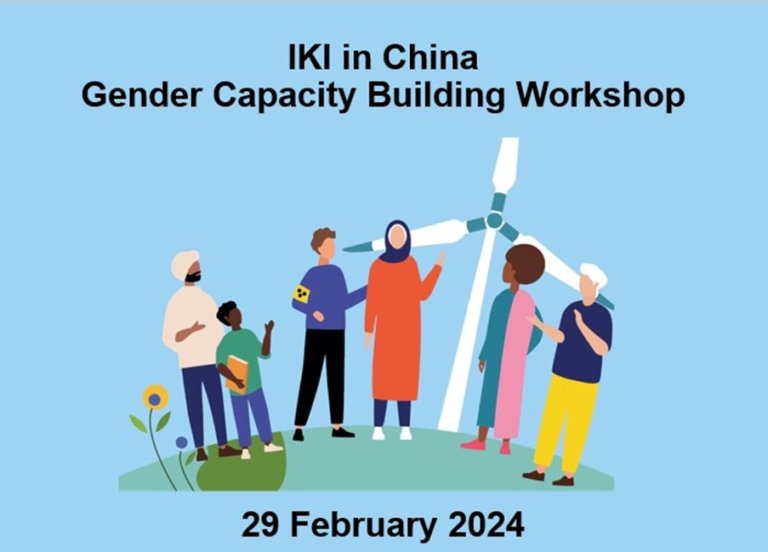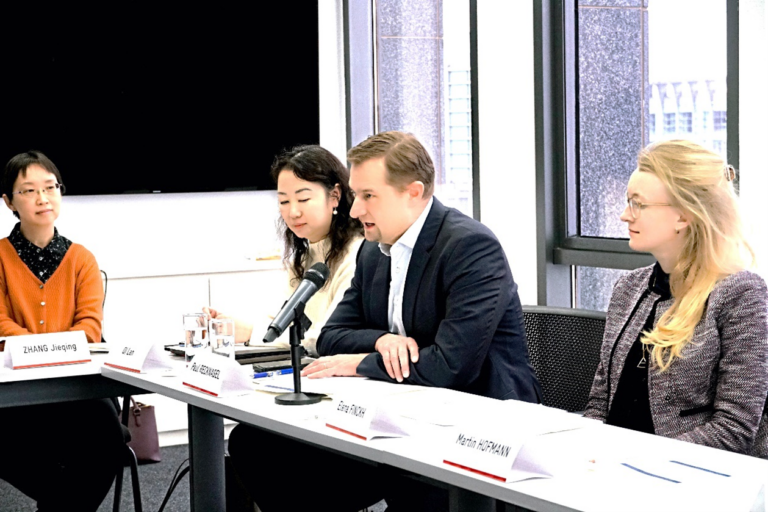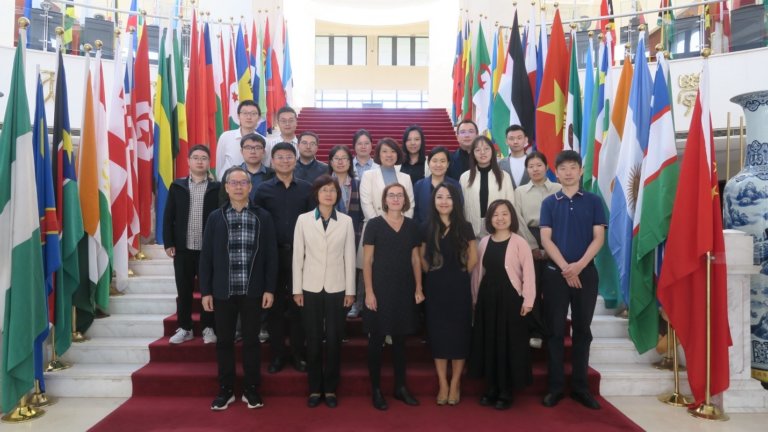On September 20, 2022, NDC Implementation Consortium members from National Center for Climate Change Strategy and International Cooperation (NCSC), Climate Analytics (CA), NewClimate Institute (NCI), and GIZ gathered to exchange knowledge and reflections on climate governance experiences within the past year. Ms. ZHANG Dongyu and Ms. ZHANG Shiyi, NCSC, kicked off the workshop with an overview of climate policy and its implementation in China. They introduced China’s philosophy and goals, national strategy, policy, and institutional system for addressing climate change, with particular attention to sector-based strategies. China’s national strategy is guided by “2030/2060 targets” which aim to curb carbon emissions by 2030 and achieve carbon neutrality by 2060. In the subsequent discussion, Prof. GAO Xiang, NCSC, re-emphasized the “1+N” policy structure behind these targets, which encompasses both the long-term goals (1) and the short-term instruments used to achieve them (N).

Next, Mr. Victor Maxwell presented Climate Analytics’ report on the EU’s approach to effort sharing. In the EU, Member States distribute the burden of emission reduction targets in accordance with the Emission Sharing Regulation (ESR). Mr. Maxwell presented the basic effort sharing mechanism of the EU and lessons learned which might be useful in the Chinese context. In particular, the EU abides by the “common but differentiated responsibility” principle such that targets are allocated to Member States based on per capita GDP. The ESR then allows for further flexibility to accommodate the differences in cost-effectiveness of mitigation tactics across Member States.
Climate Analytics’ report showed the implementation of a similar emission sharing in China would require a more robust model to account for the diversity of capabilities as well as the wide range of per capita GDP among Chinese provinces. In the discussion that followed, Prof. GAO Xiang iterated the key differences between China and the EU in this respect: that China has only implemented an emission trading scheme for the power sector whereas the EU’s covers many industries, and that provincial targets largely follow Chinese national targets unlike the EU where Member States have individual reduction and neutrality targets. In this view, China’s way forward would likely incorporate best practices from Europe rather than setting out to replicate its effort sharing mechanism.
Lastly, Mr. Jamie Wong from NCI introduced NCI’s recent research on coal-phase out and just transition in Europe. NCI conducted case studies in Ruhr and Lusatia, Germany, the United Kingdom, and Spain. From these cases, the following conclusions were drawn: (1) early retirement and compensation payments for coal workers helped to mitigate the shock to the labour market, (2) training programs need to be well-coordinated and well-funded, and should be responsive to specific regional needs, and (3) investment in education, transport, and innovation is necessary for just transition, to limit outward migration, and to attract new businesses.
In the following discussion, Prof. GAO Xiang engaged extensively with the just transition topic and its relevance to the Chinese context. He indicated Chinese policymakers’ interest in and awareness of the need for just transitions in coal-dependent regions, however, similar to Europe, there’s a lack of knowledge how exactly to achieve them. Consortium members then expressed interest in research on just transitions as well as effort sharing mechanisms. As a result, several joint outputs were proposed: a comparative analysis of Chinese and German Climate Governance, a review of effort sharing methodologies and approaches from the European side, the publication of joint report on just transitions with further case studies from Germany and China, and lastly, a side event at COP27 presenting NCI’s just transition case studies as well as an overview of Chinese and German policy landscapes around the topic.



